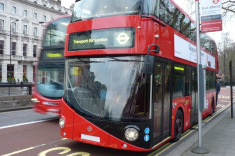Members Page
You can change details from here:
Update membership details
Request new card or badge
Change bank details
Rejoin Form
If at any time you wish to rejoin D&G Union you will need to fill out a new mandate form.
Click on pdf file to download mandate form and post back to us at:
Driver & General Union
Kennedy House
Murray Road
St Pauls Cray
Orpington
Kent
BR5 3QY
The ref : will be your old membership number.
Membership rate: £11.45 monthly (A one off rejoining fee of £5.50 will be added to first month's membership fee).
To change bank detail,download PDF complete form and post back to us or email clear picture.
applcation form inside.pdf
Adobe Acrobat document [156.2 KB]
Financial advice for D&G Union members
https://www.nexusfinancialservicesunion.co.uk/
NOW TRAINING DCPC MODULES LIVE ONLINE
Need Driver CPC training from home?
Do you have a PC with internet access?
https://www.cpcdirect.co.uk/remote-training
Road Traffic Collision Orpington
Police confirm driver was killed in horrendous crash on Thursday 31st October
A Go-Ahead London, bus driver Mr K Matcham sadly passed away after a car crashed with two London buses was a doting granddad-of-seven who spoke with his daughter just minutes before his death. Mr K Matcham was pronounced dead at the scene following the collision which left 15 people injured in Orpington, South-East London.
A 24-year-old minicab driver was arrested on suspicion of causing death by dangerous driving and drug driving following the collision at around 10pm.
Detectives from Met’s Serious Collision Investigation Unit are investigating and appealing for witnesses or anyone with dash cam, mobile phone/CCTV footage of the collision to urgently get in touch with them, call the incident room number on
020 8285 1574 or police on 101 quoting CAD 9509/31OCT.
Mr Kenneth Matcham will be missed by family, friends and colleagues our prays and thoughts go out to them.
A fund-raising page has been setup click on link below to donate.
https://www.justgiving.com/crowdfunding/kennethmatcham?utm_term=pEXBR3j67
Transfer of undertakings (TUPE)
What is TUPE?
TUPE refers to the "Transfer of Undertakings (Protection of Employment) Regulations 2006" as amended by the "Collective Redundancies and Transfer of Undertakings (Protection of Employment) (Amendment) Regulations 2014". The TUPE rules apply to organisations of all sizes and protect employees' rights when the organisation or service they work for transfers to a new employer.
TUPE has impacts for the employer who is making the transfer (also known as the outgoing employer or the transferor) and the employer who is taking on the transfer (also known as the incoming employer, the 'new employer' or the transferee).
Terms and conditions under TUPE
When TUPE applies, the employees of the outgoing employer automatically become employees of the incoming employer at the point of transfer. They carry with them their continuous service from the outgoing employer, and should continue to enjoy the same terms and conditions of employment with the incoming employer.
Following a transfer, employers often find they have employees with different terms and conditions working alongside each other and wish to change/harmonise terms and conditions. However, TUPE protects against change/harmonisation for an indefinite period if the sole or principal reason for the change is the transfer. Any such changes will be void.
Employers seeking to change terms which are unrelated to the transfer should seek legal advice to ensure this is
the case and read the Acas leaflet ![]() Advice leaflet -
Varying a contract of employment [195kb].
Advice leaflet -
Varying a contract of employment [195kb].
If an employee leaves and claims constructive dismissal due to changes in their contract which are significant and fundamental they will need to have the qualifying length of service to do this.
Disclosure of employee liability information
The outgoing employer must provide information about transferring employees to the incoming employer, and this is called Employee Liability Information.
The following information must be provided:
- the identity and age of the employees who will transfer
- information contained in the written statement of those employees
- details of any disciplinary action taken against an employee in the last two years
- details of grievances raised by an employee in the last two years
- instances of legal actions taken by employees against the outgoing employer in the last two years (any court or employment tribunal claims)
- information regarding any collective agreements
The information must be accurate, up to date and secure, and for transfers which took effect from 1 May 2014 the information must be provided not less than 28 days before the transfer. For transfers which took effect before 1 May 2014 the information should have been provided not less than 14 days before the transfer.
Information and consultation
Employers must inform/consult with employees through "appropriate" elected representatives who could be trade union representatives or, in the absence of a recognised trade union, formally elected employee representatives.
Where there are no recognised trade unions or employee representatives in place, employers must arrange elections amongst the affected employees to elect representatives to consult about the transfer.
The information must be given in writing and include:
- the fact that the transfer is going to take place, approximately when and why.
- any social, legal or economic implications for the affected employees for example a change in location or risk of redundancies.
- any measures that the outgoing and incoming employers expect to take in respect of their own employees (even if this is nothing).
- the number of agency workers employed, the departments they are working in and the type of work they are doing if agency workers are used.
- the outgoing employer must provide information about any measures which the incoming employer is considering taking in respect of affected employees.
From 31 July 2014, micro businesses (those with fewer than 10 employees overall) are not required to elect representatives to inform and consult where there are no existing recognised trade unions or elected employee representatives. However, they must still inform and consult directly with each individual employee regarding the transfer.
Dismissal and redundancies
Employers are often able to minimise or prevent redundancies and other dismissals when transfers take place. However, there will be occasions when they cannot be avoided.
If an employee is dismissed either before or after a transfer and the sole or principal reason for the dismissal is the transfer, it will be automatically unfair.
Employees who believe that their terms and conditions have been substantially changed to their detriment before or after a transfer have the right to terminate their employment and claim constructive unfair dismissal at a tribunal. TUPE classifies these types of resignations as dismissals.
Where a potential redundancy situation arises as a result of a transfer, employers must consult directly with affected employees and indirectly through representatives when the incoming employer is making (or intending to make) 20 or more redundancies within a 90-day period. Where there are fewer than 20 employees being made redundant within a 90-day period, there is still a legal requirement to consult with employees individually but there are no prescribed time limits in which to do so.
Employers must first consult with a recognised trade union where they exist, and if there is no recognised union then with elected employee representatives.
See more information on redundancy.
Collective agreements
Collective agreements in place at the time of the transfer also transfer to the incoming employer. These include terms and conditions of employment negotiated through collective bargaining as well as the wider employment relations arrangements. Examples include the collective disputes procedure, time off facilities, training for union representatives, negotiated redundancy procedures or job security arrangements and flexible working arrangements.
Terms and conditions from collective agreements may be renegotiated after one year provided that overall the contract is no less favourable to the employee.
In some circumstances contractual changes arising from new collective agreements agreed by the outgoing employer are not required to be incorporated after a transfer.
Handling-TUPE-Transfers-The-Acas-Guide.p[...]
Adobe Acrobat document [679.8 KB]
Varying-a-contract-of-employment-Acas-le[...]
Adobe Acrobat document [195.5 KB]
National standard for driving buses and coaches
The standard is for bus and coach drivers and tells you what you must be able to do to be a safe and responsible driver.
Contact the Driver and Vehicle Standards Agency (DVSA) if you have:
- questions about the standard
- ideas about how it could be improved
- evidence to make the standard stronger
DVSA.gov.uk web page
national-standard-for-driving-buses-and-[...]
Adobe Acrobat document [594.6 KB]
Driver & General Union
Kennedy House
Murray Road
St Pauls Cray
Orpington
Kent
BR5 3QY
08448 005 557
Head Office
D&G Union
Kennedy House
Murray Road
St Pauls Cray
Orpington
Kent
BR5 3QY
08448 005 557
Membership rate: £11.45 pcm (a one off admin charge of £5.50 will be added to first month's membership fee).
Contact us today!
If you have any queries, please contact us:
08448 005 557
Or use our contact form.










